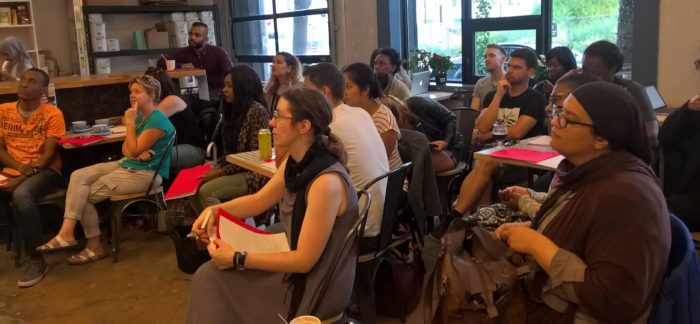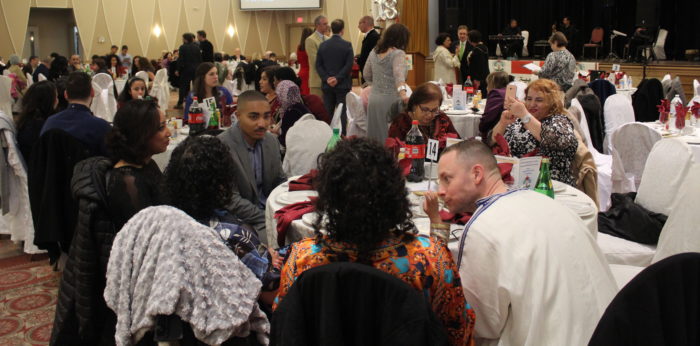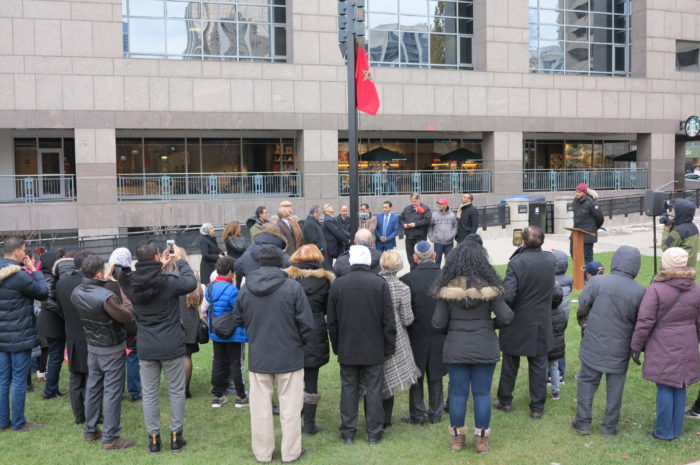This article is an archive and was originally published in November 2019
They are senior executives, business owners, lawyers, and doctors. Their incomes allow them to live in the most affluent neighborhoods of Morocco’s major cities, and their children attend the country’s most prestigious schools. Yet, more and more of them are leaving this comfortable Morocco, leaving behind family, careers, and social privileges. Many are choosing Canada.
A land of opportunity, a land of exile, or simply a land of “new chances,” the maple-leaf country attracts them with its accessibility, booming economy, quality of life, cosmopolitan society, and other factors that set it apart from Western Europe or the United States—the classic destinations for Morocco’s upper professional classes. These new arrivals stand out from earlier waves of Moroccan migrants.

New profiles
“We are witnessing a significant arrival of Moroccans […] who previously led fairly affluent lifestyles […] and are leaving behind their high-level positions in major companies to start a new life here.”
For a long time, Moroccan immigrants in Canada fell into three main categories: students, recent graduates, and workers benefiting from family reunification. “In the last two or three years, we’ve seen a significant increase in Moroccans who don’t fit any of these three profiles. These are people who had rather affluent, even very comfortable, lifestyles in Morocco and are leaving their executive positions in large companies to start a new life here,” notes Abdelhamid Bamhamed, a Moroccan PhD student at the University of Ottawa, who has lived in Canada since 2011.
Youssef Cheddadi, director of the Casablanca-based immigration consultancy Newlife, echoes this observation: “It’s a trend we’ve noticed for three years. Couples of executives earning combined monthly salaries of 50, 60, or even 70,000 dirhams are coming to us to inquire about quick immigration options to Canada.”
“These individuals aren’t coming to ‘try their luck’ like traditional immigrants; they arrive with degrees and expertise in their fields, so their success here is almost guaranteed,” he adds.

Express exodus
This new trend coincided with the Canadian federal government’s 2015 launch of the “Express Entry” system, which allows Canada to select skilled immigrants likely to meet the country’s needs.
Previously, processing applications could drag on for several years, but the “Express Entry” system allows candidates to receive a response within twelve months. “This is a new kind of immigration. Canada uses this process to quickly address a significant labor shortage in the provinces. This federal program is largely delegated to the provinces, as they are best qualified to assess their human capital needs,” says Souriya Otmani, Morocco’s ambassador to Canada since April 2018.
“The ‘Express Entry’ program emphasizes academic qualifications and proficiency in both official languages, French and English. Additionally, candidates must have funds amounting to 100,000 dirhams,” explains Souriya Otmani.
“This program emphasizes academic qualifications and proficiency in both official languages, French and English. Additionally, candidates must have funds amounting to 100,000 dirhams. The combination of these three criteria has created an open door for many upper-middle-class individuals. They are often fully bilingual due to their studies abroad or at Al Akhawayn University, hold solid degrees, and have the financial means to meet the required funds to validate their application,” explains Youssef Cheddadi.
The “Express Entry” system grants access to all Canadian provinces except Quebec, which has its own immigration program. “The overwhelming majority of clients we advise on this system choose Ontario, especially the city of Ottawa,” agree the Canadian immigration consultants TelQuel contacted. Ontario’s unemployment rate is currently 5%, according to official statistics from October 2019, one of the lowest among the country’s ten provinces, below the national rate of 5.5%.
“Another factor to consider is the favorable political climate in the anglophone provinces, compared to the rise of the far-right and heightened debates on Islam, immigration, and secularism in Quebec. Provinces like Ontario and Alberta are still heavily influenced by Anglo-Saxon cultural norms in terms of diversity and social relations,” adds Mohamed Barhone, president of Racines, an organization for integrating Maghreb families in Quebec.
According to him, this exodus of upper-middle-class professionals isn’t limited to Morocco: “We’re witnessing a massive exodus of Moroccan, Algerian, and Tunisian businesspeople who, once in Canada, face competition from Chinese and sub-Saharan African entrepreneurs, whose networks have been well established for years.”
“In Canada, not a day goes by without someone asking you to contribute to a campaign for cold relief. Additionally, volunteering is well-regarded here; it’s a career booster”
Having settled in Ottawa with his wife and two children almost a year ago, Omar, 42, has come to see Ontarians as “calm and civic-minded,” even though, as he puts it, “it’s not always rosy at first, since their culture and behavior can seem cold.” In his view, “it’s just their nature; when it comes to giving back to the community, they’re generous with their time and money.” He adds, “We often see firefighter parades collecting toys for underprivileged children. In Canada, not a day goes by without being asked to contribute to a cold-relief drive, like donating old winter boots. Also, volunteering is highly regarded here. Including it on a résumé is a career booster.”

Unease at home
“When we ask these clients about their motivations, the most common response is, ‘I’m worried about my children here’”
Whether preparing to leave, newly settled in Canada, or still hesitant to take the plunge, everyone we interviewed described a sense of social unease in Morocco. “When we ask clients about their motivations, the most frequent response is, ‘I’m worried about my children here; I want them to grow up in an environment where they have a certain future,’” notes Youssef Cheddadi, who mentions that his office sees a peak in consultations just before the start of the school year.
This sentiment is echoed by those we spoke to. “We may put our children in the best schools, ensure they get a quality education, and support them through higher studies, but there’s no guarantee of their success. Where can you even go with your kids in Casablanca without having to spend money?” questions a former senior executive from a multinational who has been living in Canada since summer 2018.
“The stories of assaults in our area were increasing, and we noticed that the children had become completely unmotivated about going to school…”
“About two years ago, daily life started to feel grim: stories of assaults in our area were increasing, we noticed the kids had become completely unmotivated about going to school, and we realized how expensive it had become to pay for their healthcare. Even professionally, I found myself spending most of my time chasing down payments from clients,” recounts Mohamed, a former business owner who felt he was losing purpose and is now working at a bank in Ottawa, where he relocated in August 2019.

For this group, moving to Canada often means a professional and social sacrifice. Once they arrive, their networks of influence fall apart, and they sometimes find themselves having to restart their careers from the bottom, experiencing a sense of social downgrading. They go back to being just regular people.
“I’m 42 and at a point of maturity. In Morocco, I was among the top twenty in my field (corporate real estate). Here, I have to start over, and it teaches you humility. Age doesn’t matter—you could be 19 or 60, it makes no difference. You’re a productive agent, part of a team, valued for that. Yes, I could probably return to real estate here, but I’d need to get certifications. I didn’t want to jump into real estate licensing courses—not just yet,” shares Omar.
“A CEO earning 100,000 dirhams a month and his wife started assessing their eligibility to leave,”
For him, “if you’re experiencing a persistent sense of unease in Morocco, every country in the world feels within reach. If you’re not feeling well, you have to find reasons. When I ‘came out’ about my plans to move to Canada, I was overwhelmed by the interest from friends and family—everyone, from friends to cousins… A CEO earning 100,000 dirhams a month and his wife, for example, started calculating their potential score to assess their eligibility for leaving. It’s sad that such brilliant and productive people, with impressive educations, are choosing to take this route, but that’s how it is.” And this is only the beginning.

Morocco-Canada: a longstanding love affair
Moroccan emigration to Canada is nothing new. After migrants from the Mashreq countries, it was Moroccan Jews who began emigrating to Canada around the 1950s.
This first wave arrived before Canada opened its borders to increasingly diverse migration. « A large portion of Morocco’s Jewish community emigrated to Quebec between 1950 and 1980, following the kingdom’s independence and the first Israeli-Arab wars, » explain Myriam Abouzaïd and Houda Asal in their study Moroccans in Canada: History, Profile, and Issues.
It wasn’t until the late 1990s that a new wave of migration from Morocco to Canada began, fueled by the tightening of « European borders through the implementation of the Schengen Agreements, which increased the desire to emigrate, » notes Stéphanie Garneau in her study Moroccan Emigration to Canada: Contexts of Departure and Diversity of Migratory Paths.
The adoption of the Canada-Quebec Accord in 1991, which gave Quebec more power to select immigrants, facilitated arrivals from French-speaking countries, especially Morocco. Since 1996, with the introduction of a new selection grid for immigrants, « Canada and Quebec’s active recruitment efforts have become very visible in Morocco, where a true emigration market to Canada has emerged, complete with billboards, frequent ads in newspapers and magazines, a proliferation of consulting and immigration law offices, and informational sessions held in hotels, » the researcher concludes.
Quebec, not quite the « Belle Province » anymore
According to the Quebec Institute of Statistics, between 2012 and 2016, 12,880 Moroccans emigrated to Quebec, making them the sixth most represented nationality. In 2017, Morocco dropped to seventh place with 1,967 nationals. Among North Africans, Moroccans are the second most represented nationality among new arrivals to Canada, after Algerians.
For a long time, Quebec, Canada’s only francophone province, was the de facto destination for Moroccans. However, this is changing. In February, the Quebec government suspended more than 18,000 immigration applications worldwide due to a bill aimed at altering selection and integration processes for foreign nationals. As a result, hundreds of Moroccans who had submitted their applications years ago saw their cases canceled.
Worse, for Moroccans and other North Africans, Quebec is no longer the promised land it once was. Estimates suggest that the unemployment rate for North Africans in Quebec fluctuates between 20% and 30%, at least four times the province’s average of 4.8% (as of September 2019).
In May 2018, a study by Jean-Philippe Beauregard, a researcher at Laval University, concluded that, with equivalent qualifications, a candidate of North African origin is half as likely to be called back by an employer in Quebec as a native-born Quebecer. The study highlights that such levels of discrimination can lead candidates into unemployment or force them to accept positions for which they are overqualified.
Written in French by Houssam Hatim and Omar Kabbadj, edited in English by Eric Nielson




